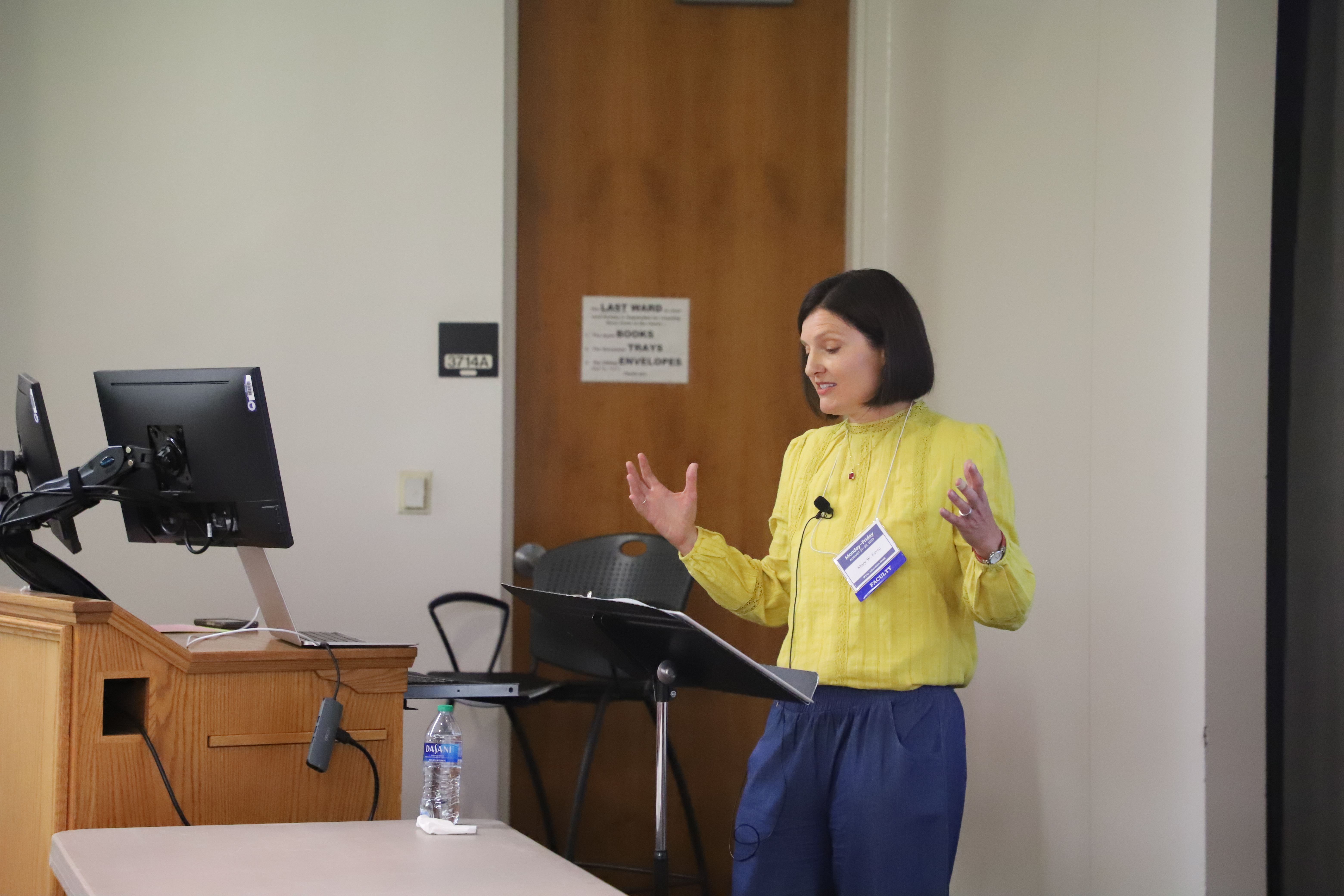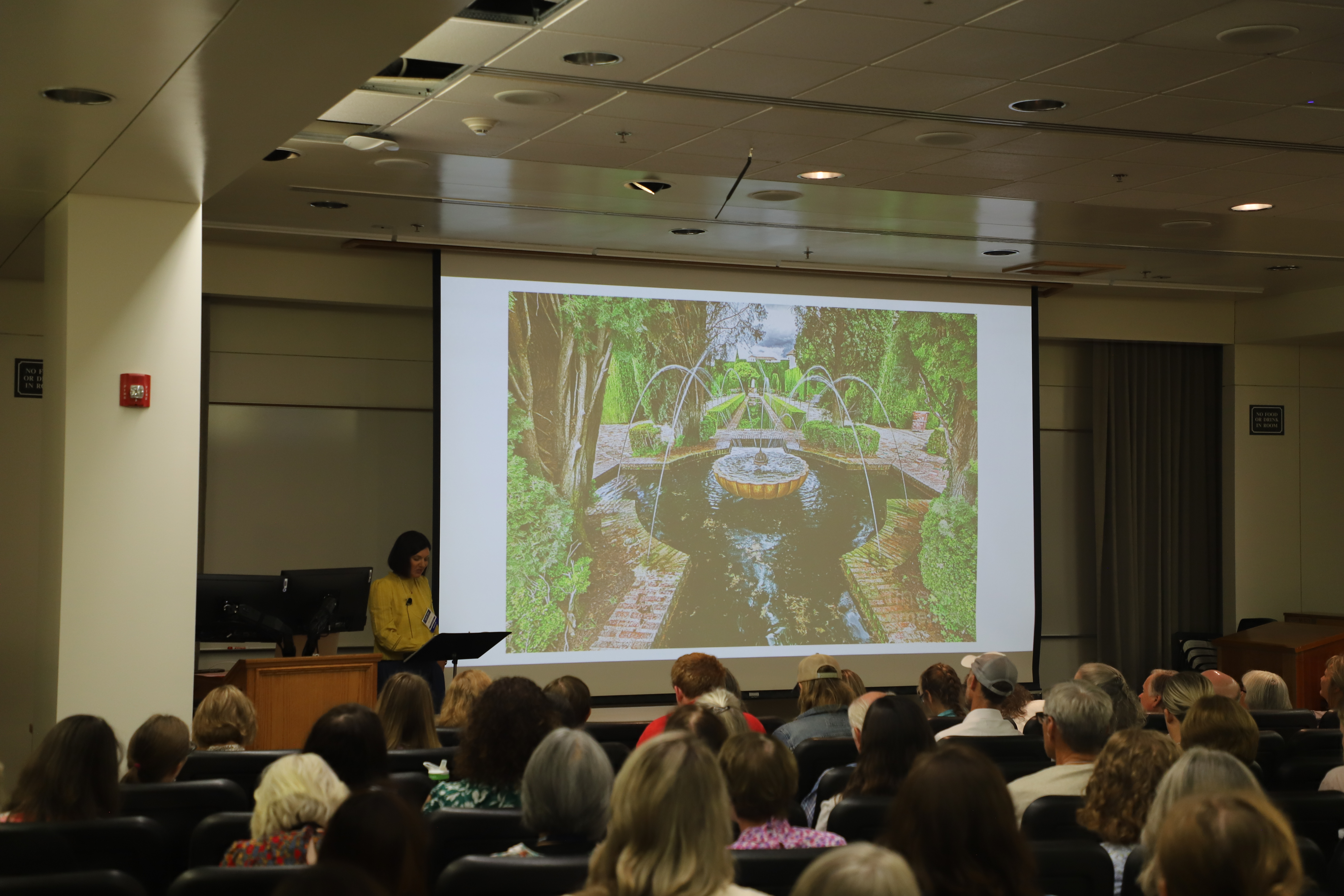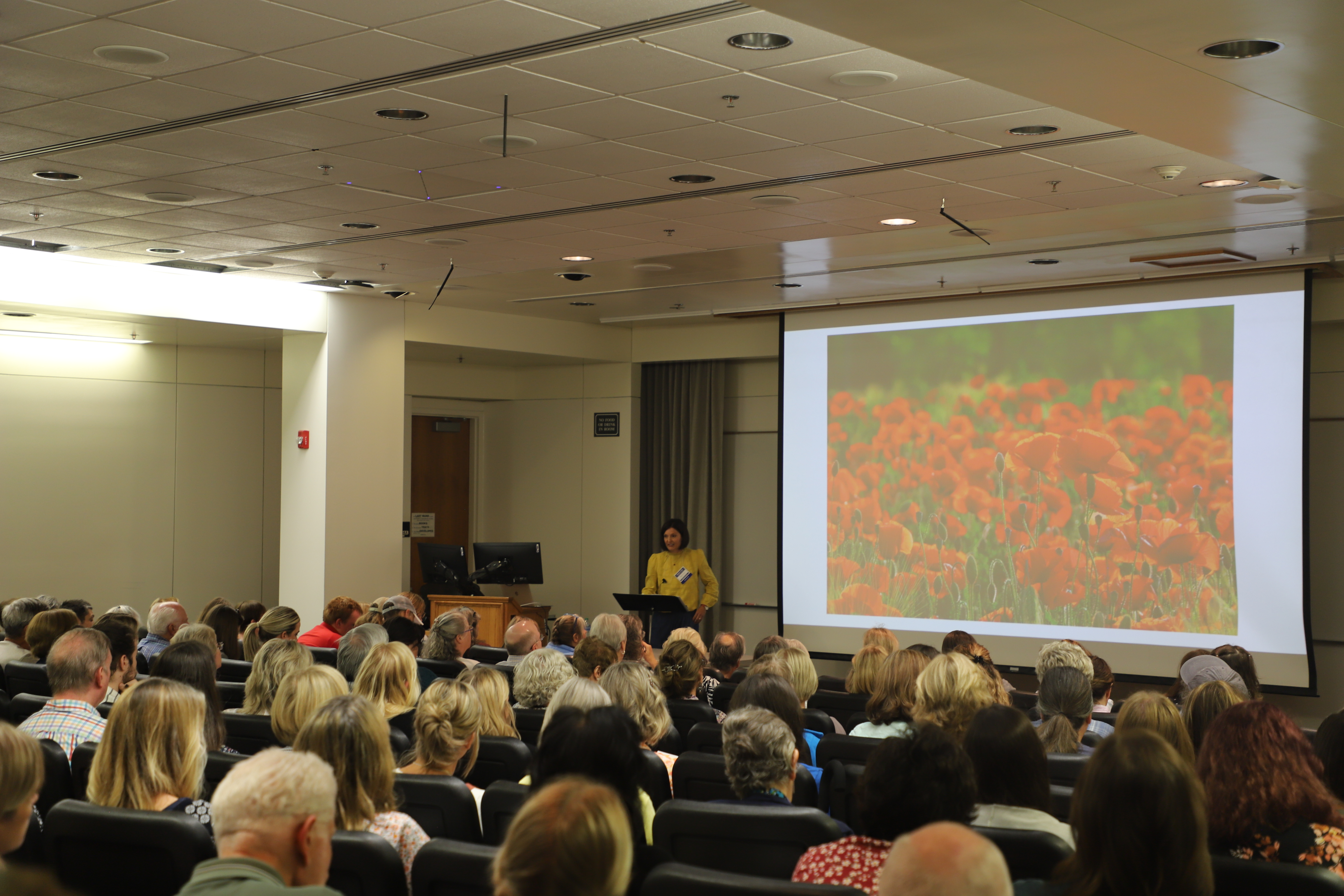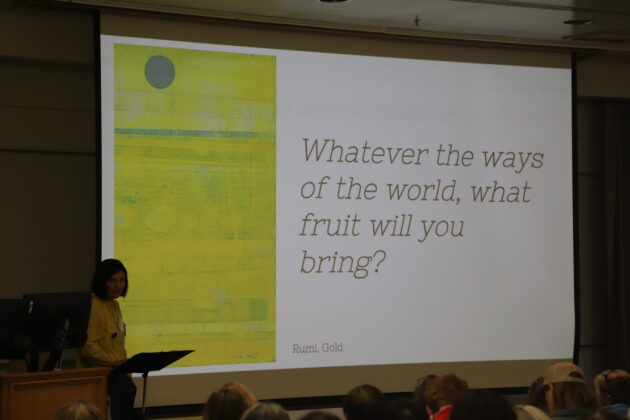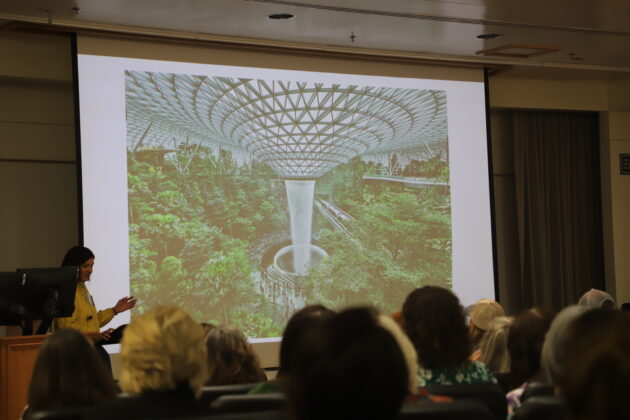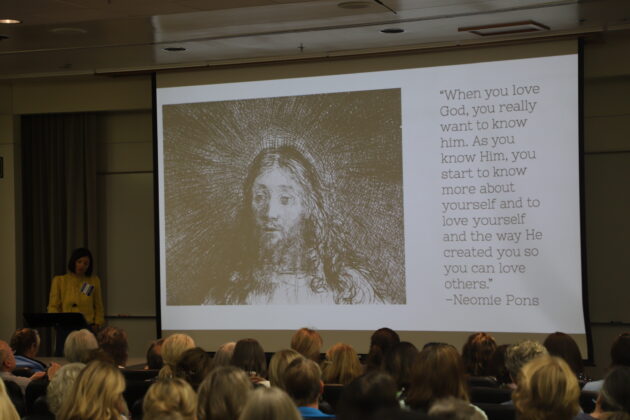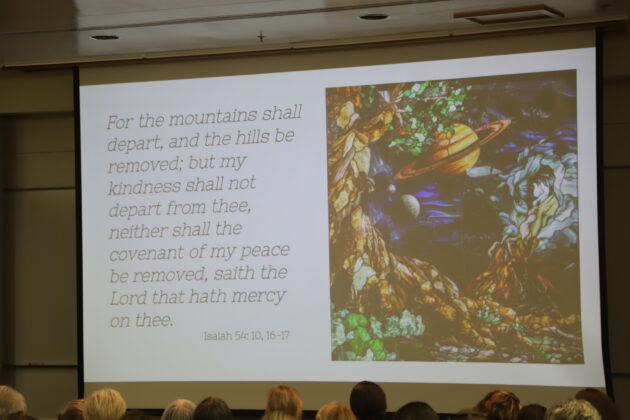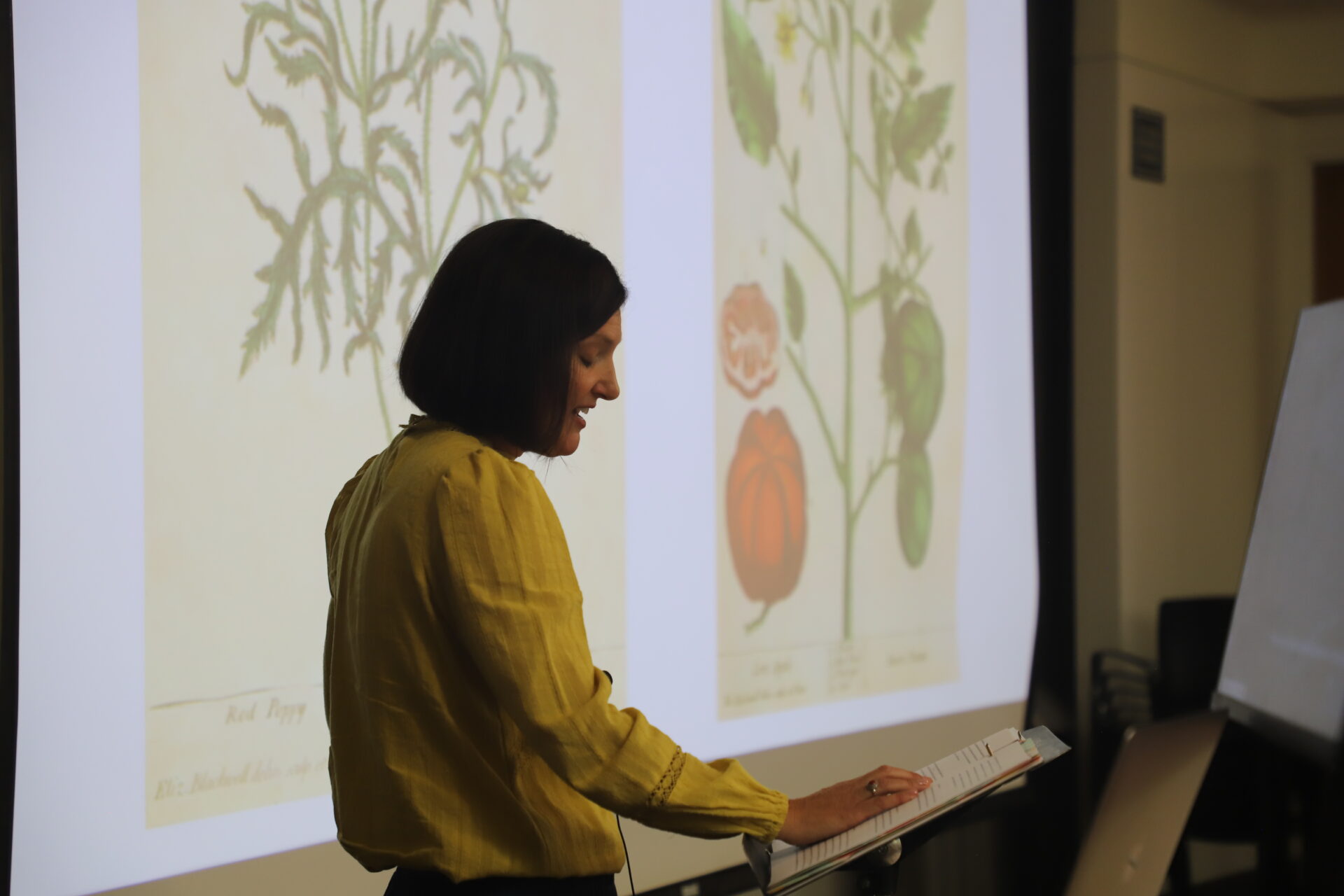
Ensign College humanities professor Mary Favro believes that all types of creators — from artists and architects to poets and gardeners — have lessons to impart about flourishing.
In her Education Week presentation titled “The Art of Living Well: What the Humanities Teach Us About Flourishing,” Favro expounded on diverse examples of art and how they teach qualities like resilience and unity. Favro is presenting throughout Education Week, with her final presentation on Friday Aug. 25 at 12:30 p.m.
Her sub-topic on Tuesday, Aug. 22 was “Like a Watered Garden: Nourishing a Life of Meaning and Purpose.” Other sub-topics offered during the week include “The Measure of Your Creation: Cultivating Confidence Through Creativity” and “To Everything There is a Season: Exploring the Process of Time.”
Favro’s definition of flourishing includes nourishing spirituality and viewing it as a gift, gratitude, believing that one is called to greatness, appreciating unique personal talents, mindfulness, developing deep human connections, developing habits that lead to good decisions and cultivating global awareness.
According to Favro, gardens have been a symbol of flourishing and paradise since ancient Mesopotamia, and are often intentional reminders of heavenly paradise. Islamic gardens are based on three principles: a lush scent, water and sacred geometry.
“A flourishing garden in the middle of a desert creates a striking contrast to the hot and dry climate,” Favro said about Islamic gardens. “Something that looks lush and refreshing in this environment is especially enticing. A gardens of beauty is enhanced when it is surrounded by a sun scored desert.”
Favro noted that the ancient prophet Isaiah knew this and often used gardens as a metaphor.
“Isaiah offers beautiful imagery of our lives being like well-watered gardens if we let god all the way into our hearts and into our homes,” Favro said after quoting Isaiah 58:11.
The lord will always guide you. He will satisfy you in a sun scorched land, and he will strengthen your frame. You will be like a well-watered garden, like a spring whose waters never fail.
Isaiah 58:11
Favro included examples of gardens all over the world in her presentation, including the Japanese garden in Portland, Oregon, which Favro described as “being born out of a hope for healing” in response to World War II.
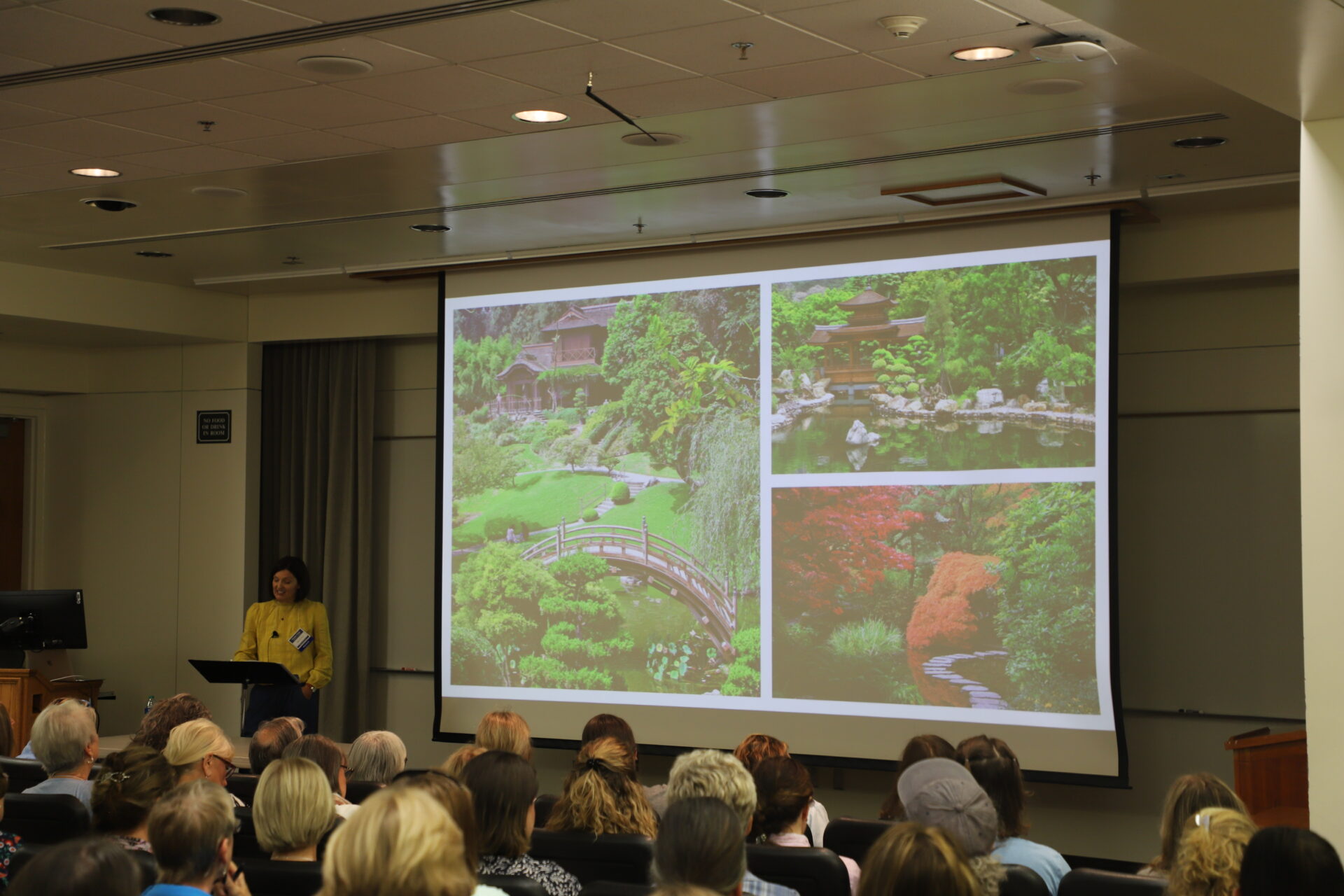
“Since its inception, the landscape architect Tacoma has put peace and unity at the heart of this garden. Local plants, like shore pine Douglas spurs, coexist with Japanese black pine and red pine. These trees act as a symbol of connection between two cultures,” Favro said.
Tim Boss, who attended the class, said that Favro’s variety of examples were most fascinating to him.
“She pulled different aspects of beauty and different aspects of life from different cultures around the world,” Boss said.
Boss lived in Portland, Oregon for 10 years and spent time in the Portland Japanese garden. Boss now lives in Pleasant Grove, but remembers the garden as “truly amazing.”
Along with gardens Favro highlighted artwork, music, books and poetry.
She drew from Mary Oliver’s poem “When I’m Among the Trees” to discuss the connection between mindfulness, gratitude and nature and how that leads to flourishing.
"When I Am Among the Trees" by Mary Oliver When I am among the trees, especially the willows and the honey locust, equally the beech, the oaks and the pines, they give off such hints of gladness. I would almost say that they save me, and daily. I am so distant from the hope of myself, in which I have goodness, and discernment, and never hurry through the world but walk slowly, and bow often. Around me the trees stir in their leaves and call out, “Stay awhile.” The light flows from their branches. And they call again, “It's simple,” they say, “and you too have come into the world to do this, to go easy, to be filled with light, and to shine.”
Favro also emphasized that similar to the way that nature flourishes, a flourishing life takes endurance, effort and connection.
“Reach for the unimaginable and then work together to make it happen,” Favro said.
Ashley Hampton, a future BYU student from Spokane Valley, Washington, loved how much global unity was emphasized in Favro’s class.
“It’s important that God created diversity because diversity equals complimentary equals, like serenity and beauty,” Hampton said.
Hampton plans on studying art education and described art as a universal language. Following Favro’s presentation Hampton spoke to Favro, showing her the drawings and notes Hampton took while listening to the presentation.
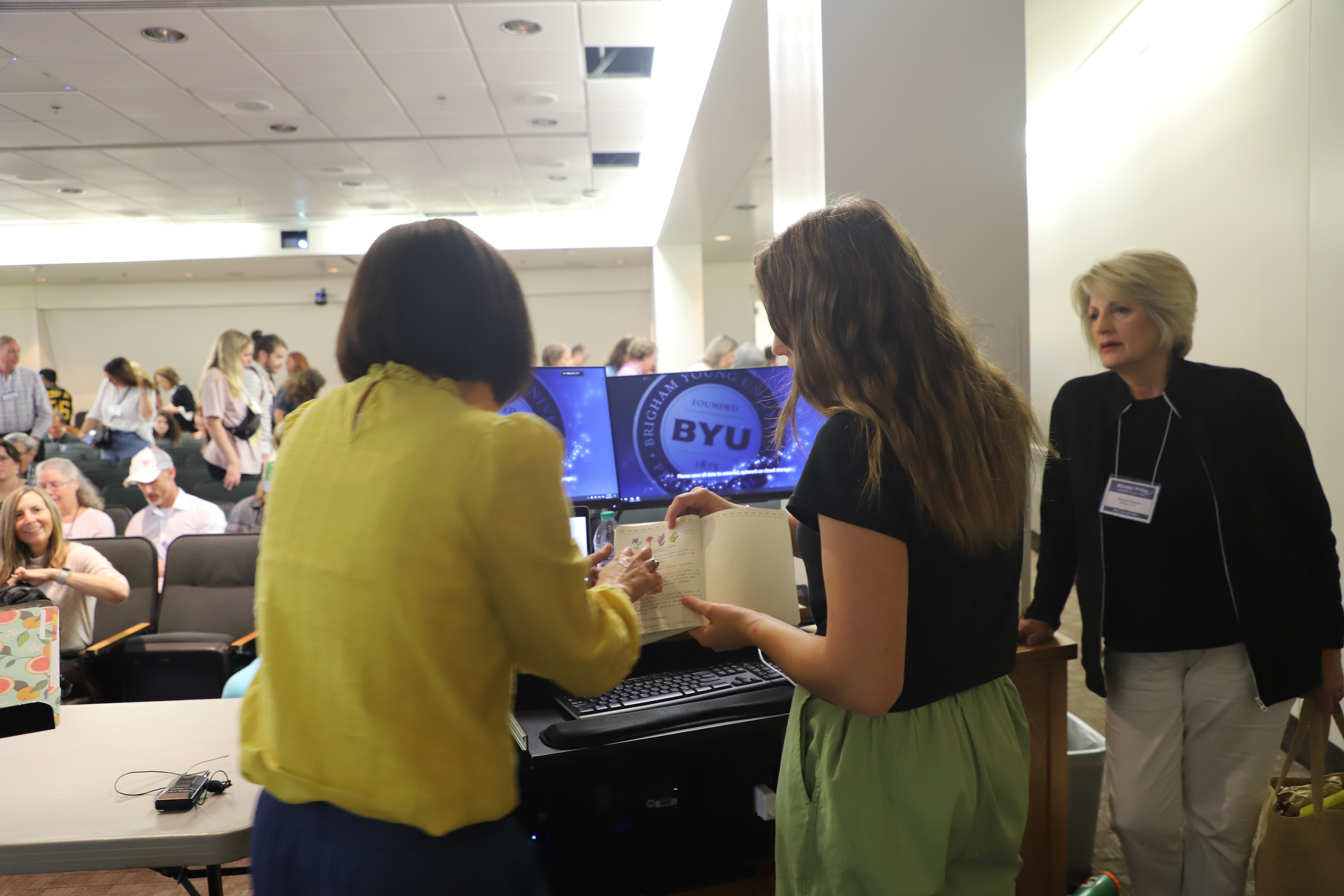
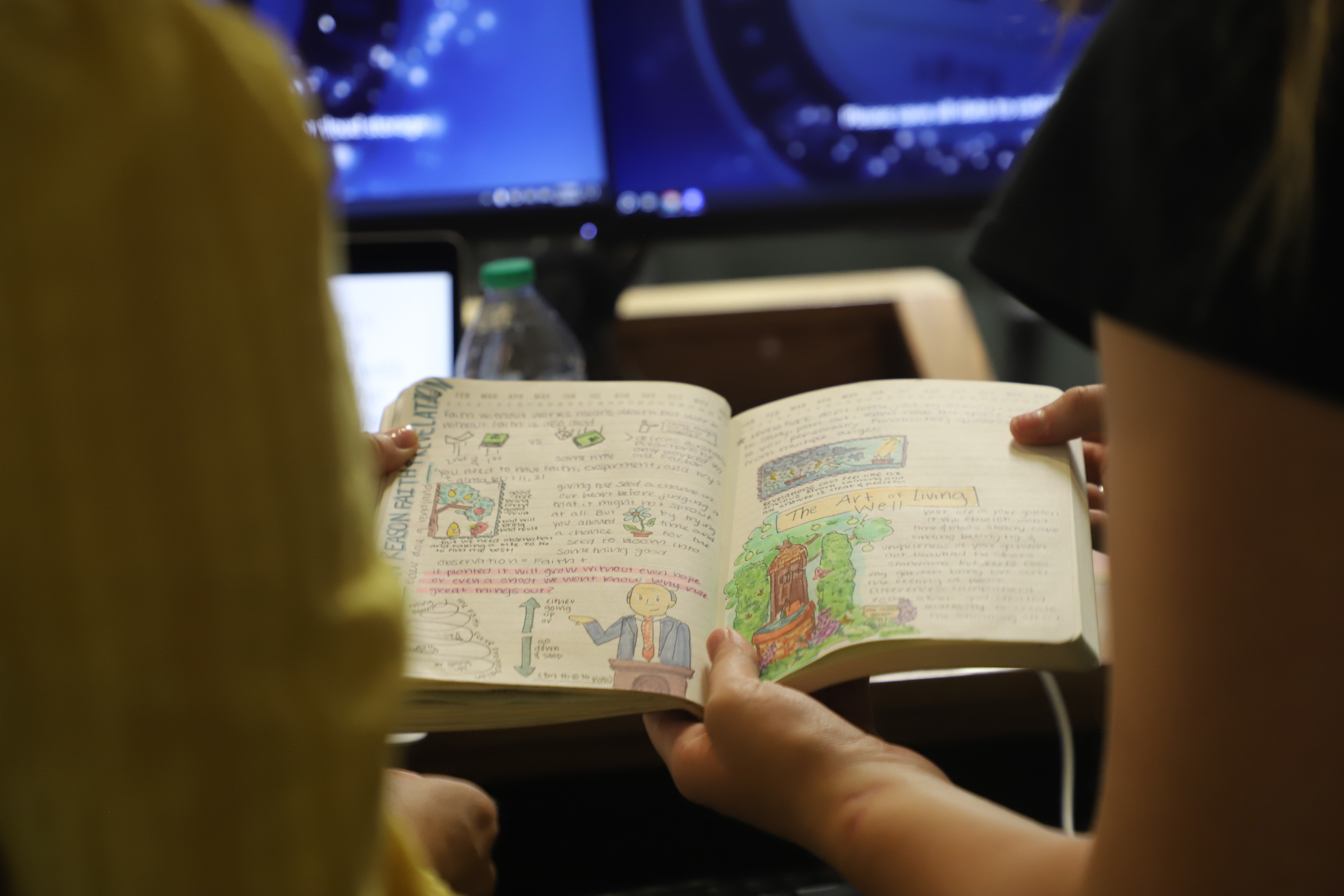
Favro also included a hopeful message about life’s difficulties in her presentation.
Drawing from the book “Wintering: The Power of Rest and Retreat in Difficult Times” by Katherine May, Favro said that difficult times, or personal winters, are common aspects of a flourishing life. Favro then quoted May.
You’ll find wisdom in your winter. And once it’s over, it’s your responsibility to pass it on. And in return, it’s our responsibility to listen to those who have wintered before us. It’s an exchange of gifts in which nobody loses out.
Katherine May from “Wintering: The Power of Rest and Retreat in Difficult Times”
Favro’s final point was that flourishing is a byproduct of a relationship with Jesus Christ. Getting to know the Savior leads to an expansion of God’s love in one’s own life and in the lives of those around them, she said.
“God wants to bless us abundantly. Does flourishing mean that life will be easy? No. … What flourishing does mean is having this knowledge of God’s love at the forefront of our minds. And having a living relationship with Him and His son as we make our way through mortality,” Favro said.

Attendees interested in listening to her artful presentation about flourishing can find her class in Room 3714 of the Harold B. Lee Library at 12:30 p.m. Each day of her presentation will feature a different sub-topic covering how the humanities teach about living a life of flourishing.

